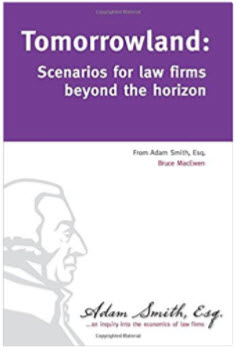Our knowledge of the factors which will govern the yield of an investment some years hence is usually very slight and often negligible. If we speak frankly, we have to admit that our basis of knowledge for estimate the yield ten years hence of a railway, a copper mine, a textile factory, the goodwill of a patent medicine, an Atlantic liner, a building in the City of London amounts to little and sometimes to nothing; or even five years hence.
By ‘uncertain’ knowledge, let me explain, I do not mean merely to distinguish what is known for certain from what is merely probable. The game of roulette is not subject, in this sense, to uncertainty. [The] expectation of life is only slightly uncertain [and] even the weather is only moderately uncertain.
The sense in which I am using the term is that in which the prospect of a European war is uncertain, or the price of copper and the rate of interest twenty years hence, or the obsolescence of a new invention. About these matters there is no scientific basis on which to form any calculable probability whatever. We simply do not know.
Nevertheless, the necessity for action and for decision compels us as practical men to overlook this awkward fact and to behave exactly as we should if we had behind us a good Benthamite calculation of a series of prospective advantages and disadvantages, each multiplied by its appropriate probability, waiting to be summed.
Mervyn King, chair of the Bank of England from 2003 to 2013, adopts radical uncertainty as his core idea in his book on the great financial crisis, The End of Alchemy: Money, Banking, and the Future of the Global Economy (W. W. Norton, New York: 2016). He’s also careful to distinguish radical uncertainty from behavioral economics, to which it bears a casual resemblance:
The danger in the assumption of behavioural economics that people are intrinsically irrational is that it leads to the view that governments should intervene to correct “biases” in individual decisions or to “nudge” them towards optimal outcomes.
But why do we feel able to classify behavior as irrational? Are policy-makers more rational than the voters whose behavior they wish to modify? I prefer to assume that neither group is stupid but that both are struggling to cope with a challenging environment. […]
The problem with behavioural economics is that it does not confront the deep question of what it means to be rational when the assumptions of the traditional optimizing model fail to hold. Individuals are not compelled to be driven by impulses, but nor are they living in a world for which there is a single optimizing solution to each problem.
If we do not know how the world works, there is no unique right answer, only a problem of coping with the unknown.[2]
I would ask you, then, Dear Reader, to proceed with the book in your hands with the notion of radical uncertainty as something of an organizing principle. Risk lends itself to quantification and indeed to mind-bending equations and economic models, but radical uncertainty is mathematically intractable.
Perhaps that’s why economists tried to ignore it for nearly a century; they didn’t know quite what to do with it.
This is not the time or place to speculate about the future course of academic and popular economic thinking, but permit me to note that taking radical uncertainty seriously demands a profound rethink of conventional economic analysis. To begin with, rather than postulate a rational homo economicus as the kicking-off point for analysis, convenient because utility-maximizing functions and indifference frontiers lend themselves to standard techniques in algebra and geometry, the intellectual task would be of a different order altogether.
Under radical uncertainty, people, firms, and nations leave the realm of dealing with quantifiable risks and move directly into “coping.”
Which brings us back to scenarios and not predictions. Predictions are grounded in (usually fallacious) calculations of probabilities; scenarios ask us to imagine how we as individuals and leaders of firms would cope “if…..”
So with this introduction and counsel, shall we begin?
Slip your critical faculties into gear, and I’ll preview the scenarios to follow. I have not arranged their sequence and presentation in any particular structured or principled order or along any spectrum from “most ___” to “least ____” or vice versa, so don’t be disconcerted if you find no such flow. My goal, to the extent the sequence is purposeful at all, is primarily to keep the perspectives appearing fresh. Logic compels only the first and the last to appear where they are.
- Nothing to see here, folks; move along
- Lawyer psychology, enabled by the partnership model, wins
- Talent and free agency win
- Differentiation and “speciation” win
- New entrants win
- Networks win
- Brands win
- Machines win
- The dynamics of market evolution.
[1] (London: Palgrave Macmillan) 1st ed. 1936, at 113-114..
[2] Alchemy at p. 133-134.




As always Bruce, spending time with you is like entering a world where sense instead of nonsense constantly erupts in large and small bursts all around.
Malcolm:
You are so very kind; thank you most sincerely.
As elements in our nation and across the globe seem to be detouring from the path of civilization, I find it increasingly essential to my sanity to return to some of the more enduring principles and, yes, values. Of course it matters what one does, but it also matters what one says and stands for.